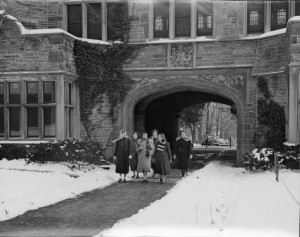 An Agenda for Digital Humanities and Digital Culture
An Agenda for Digital Humanities and Digital Culture
First Meeting of the Italian Association for Digital Humanities and Digital Culture
Florence, 13-14 December 2012
Via dell’Arte della Lana, 1, 50123 Florence
The Italian Association for Digital Humanities and Digital Culture is passing through a crucial moment. After the important works and results reached by the first researchers in this field, there is now in Italy a wide and lively community who shares methods, theories and practices, both on a national and an international level. One year ago this community has organized itself and it is represented by a national Association. The aim of this first meeting is to present Digital Humanities and Digital Cultures as a fundamental component for the development of humanities research in Italy.
Goals
During the meeting the discussion will focus on some fundamental issues so to define an agenda of the priority activities.
The questions which will foster the discussion will be:
– What are the infrastructure requirements? What are the current research centers, libraries, archives and other services supporting research and teaching in digital humanities?
– What are the standards for the evaluation of digital publications in the humanities? And what about the evaluation of research in digital humanities?
– How to stimulate multidisciplinary research experiences? How to create synergies with other academic communities, starting with the computer science one?
Attendance to the meeting is free, but registration by 10 December 2012 at http://aiucd.eventbrite.it/ is mandatory.
Provisional programme
13 December
9:00 am 1:00 pm
Infrastructures
3:00 pm 6:00 pm
Research, evaluation and dissemination of results in digital humanities
14 December
9:00 am 1:00 pm
Italian projects and experiences of multidisciplinary convergence
3:00 pm 6:00 pm
Members meeting
The definitive programme will be published on the Association website (http://www.umanisticadigitale.it) and on related mailing lists as soon as it will be available.
Call for Papers
The organizing committee is proposing a Call for Papers for the third session Italian projects and experiences of multidisciplinary convergence.
Abstract proposals (maximum of 500 words) should be sent by email by 15 November 2012 to cunsolo@rinascimento-digitale.it.
The authors of the selected proposals will receive the acceptance communication by the end of November 2012.
Papers presentation should have a maximum length of 20 minutes, including Q&A. Papers will be published as conference proceedings.








